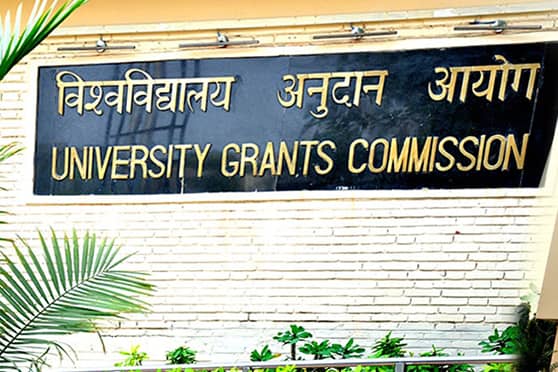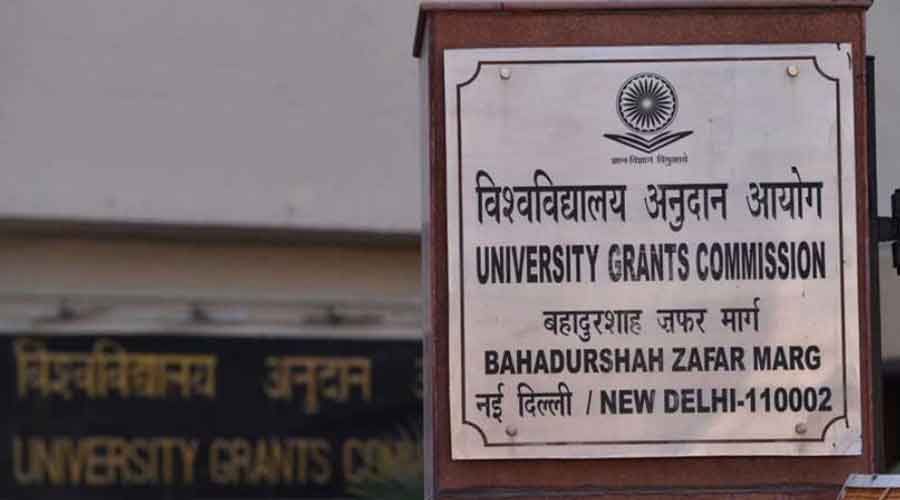Indian and foreign higher educational institutions may soon be able to offer joint or dual degrees and twinning programmes with the University Grants Commission (UGC) approving the regulations for these programmes, according to its Chairman M Jagadesh Kumar.
The decision was taken at a meeting of the higher education regulator on Tuesday.
"Any Indian institution accredited by the National Assessment and Accreditation Council (NAAC) with a minimum score of 3.01 or in the top 100 in the university category of the National Institutional Ranking Framework (NIRF) or an Institution of Eminence can collaborate with any foreign institution in the top 500 of the Times Higher Education or QS World University ranking, without seeking any prior approval from the UGC," Kumar said at a press conference here.
The regulations shall not be applicable to the programmes offered online and in the open and distance learning mode, he added.
Kumar, however, clarified that no franchise arrangement or study centre, "whether overtly or covertly, by whatever nomenclature used, between a foreign higher educational institution and an Indian higher educational institution shall be allowed under these regulations".
According to the approved regulations, a "twinning programme" shall be a collaborative arrangement whereby students enrolled with an Indian higher educational institution may undertake their programmes of study partly in India, complying with the relevant UGC regulations, and partly in a foreign higher educational institution.
"The degree offered under such twinning programmes shall be awarded by the Indian institution," Kumar said.
For a "joint degree programme", the curriculum shall be designed jointly by the collaborating Indian and foreign higher educational institutions and upon the completion of the programme, the degree will be awarded by both the institutions with a single certificate.
A "dual degree programme" shall be a programme jointly designed and offered by the Indian and foreign higher educational institutions in the same disciplines and subject areas and at the same level.
"The degrees for such a programme shall be conferred by the Indian and foreign higher educational institutions, separately and simultaneously, upon the completion of the degree requirements of both the institutions. This shall not in any way be construed as two degree programmes in separate disciplines and subject areas or levels being pursued simultaneously," the UGC chairman said.
According to the "Academic Collaboration between Indian and Foreign Higher Educational Institutions to offer Twinning, Joint Degree and Dual Degree Programmes Regulations, 2022", which the UGC is likely to notify in the coming week, for a dual degree, the students must earn at least 30 per cent of total credits from the Indian institution.
The Indian higher educational institutions shall seek the necessary approvals from the relevant statutory councils and bodies before entering into collaborations in technical, medical, legal, agricultural and such other professional programmes.
"The degree awarded under these regulations shall be equivalent to any corresponding degree awarded by the Indian higher educational institution. There shall be no further requirement of seeking equivalence from any authority and the degree shall have all benefits, rights and privileges as obtaining in the case of a degree awarded by an Indian higher educational institution ordinarily," Kumar said.
The UGC chairman said the regulations will provide access to "high quality education" to Indian students in India through a collaborative mechanism.
"It will lead to internationalisation of our higher education while the students are in India. This will also provide a great opportunity for our students to acquire multidisciplinary education through an internationally relevant curriculum. Because of this multidisciplinary education and additional skills that our students can get through either twinning or joint degree or degree programmes, it will enhance their employability.
"And it is also true for the foreign students when they come and study here. They will know more about India, the Indian culture, the Indian society and this can lead to collaborations between countries. These regulations will lead to more collaborations between Indian institutes and big foreign institutes, which can also lead to faculty exchange and sharing of best practices," Kumar said.
At least four crore foreign students study in India and according to Kumar, the number is expected to go up to 10 crore.
While no capping of fees has been mentioned in the regulations, it has been stated that "fees as applicable for the entire duration of the programme (including courses imparted by the foreign HEI) shall be made public at the time of admission. Fee structure should be reasonable so as to make quality higher education accessible and affordable to all sections of the society".












